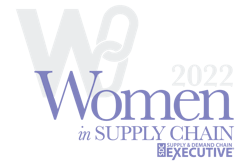
Research from Ivalua and Forrester Group revealed that 66% of organizations believe better collaboration with suppliers is needed to help increase supply chain resilience.
“In an age when Black Swan events are becoming more commonplace, collaborating with your suppliers has never been more critical,” says Alex Saric, smart procurement expert at Ivalua. “Procurement teams are tasked with minimizing the impact of supply chain disruptions, but all too often they’re unable to do so because of a lack of visibility into direct and sub-tier suppliers and an inability to collaborate efficiently and at scale. More needs to be done to digitalize procurement to unlock the power of supplier collaboration and ensure supply chain resilience.”
From PR Newswire:
- Over half (56%) of organizations have implemented automated risk monitoring to notify them of disruption, while 54% have increased inventory levels. A further 46% have turned to on / nearshoring, while 44% negotiated preferred supplier access to key goods.
- According to the study, 71% of organizations say that supply chain sustainability has increased in priority since the pandemic began.
- While organizations are prioritizing ESG initiatives such as recycling materials, reducing their carbon footprint and supporting diverse businesses, many are facing barriers to success. More than four in 10 organizations (43%) are lacking systems that enable efficient collaboration with suppliers to improve sustainability, 41% lack the ability to measure progress on ESG goals and 40% are unable to engage sub-tier suppliers.
- To overcome barriers, organizations are looking to incorporate product/service innovation into procurement KPIs (57%), give suppliers more flexibility in how they meet requirements (56%) and reduce the pressure on cost savings (52%). Almost six-in-ten (58%) of organizations are also looking to implement systems that allow them to collaborate with suppliers on product innovations.
“A lack of collaboration has become a running theme for organizations, which is impeding them from realizing greater value from suppliers – whether it’s driving innovation, achieving sustainability goals or improving supply chain resilience,” adds Saric. “A smarter, more holistic approach to procurement and supplier management is needed. By digitalizing procurement processes, organizations can effectively discover, assess, engage, and monitor suppliers, enabling them to measure progress against key business priorities such as supply continuity, ESG performance and innovation.”










